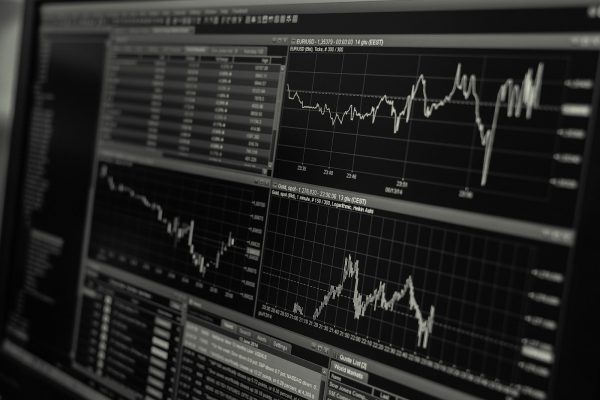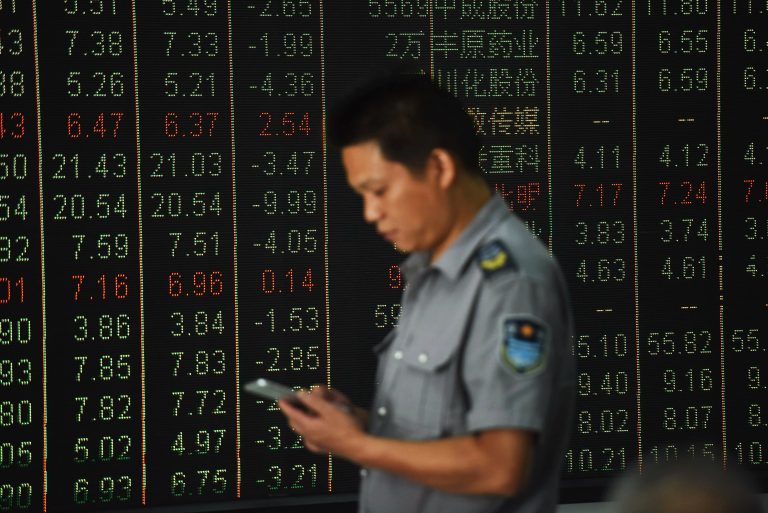The last two weeks of trading sessions brought stock trading the kind of pop culture attention it hasn’t seen in a long time, when floundering brick-and-mortar video game retailer Gamestop (NYSE: GME) ballooned more than 800 percent from slightly over $61 to a high of $483 before January’s close.
To sum up Newton’s Third Law of Motion in a familiar axiom: “What goes up must come down.” GME came back to Earth in a painful way, closing Friday trading at $63.77. Gamestop’s highest price ever before the previous two weeks of trading was also $63.77, registered in December 2007.
But on Jan. 28, the zenith of GME’s price expansion, retail trading app Robinhood intervened in the market, preventing purchases of Gamestop, as well as AMC, Blackberry, and Nokia, who were also experiencing northbound price discovery of their own.
The concern for retail users, who are seeking to rebel against the establishment while squeezing out some earnings for themselves, is simply that the money, and your data that Webull generates from your trading activity on its app goes directly to the Chinese Communist Party (CCP), simply because Chinese law requires all companies to cooperate fully with the CCP’s ambitions to keep its citizens under its thumb as it barks wildly about “stability,” its favorite buzzword to ensure its tenuous grip on totalitarian power.
The disruption led to Redditors scrambling to find alternatives to fill their desire to buy while the price was astronomical for Gamestop, leading them to an alternative trading app with connections to the People’s Republic of China, Webull.
Success
You are now signed up for our newsletter
Success
Check your email to complete sign up
Robinhood explained why in a blog post. They feed purchases and sales of stocks by their users to market makers, who execute your trades, while the underlying movement of stocks and money in relation to trades happen two days later through a clearinghouse.
Robinhood was hit with a $3 billion deposit requirement by the Deposit Trust & Clearing Corporation (DTCC) to cover the volatility. Despite this, experts are still baffled at how Robinhood was not prepared: “In interviews, more than a half-dozen senior risk executives — some from Wall Street’s largest firms — reacted with bemusement to any assertions that the magnitude of the DTCC’s demands can’t be anticipated. They spoke on the condition they not be identified, in some cases because they interact with Robinhood,” said a BNN Bloomberg article.
The fairy tale
The story, as we’ve heard, is that Reddit’s WallStreetBets organized organically to finally stick it to the man after it was revealed by SEC filings that hedge funds like Melvin Capital were holding more stock “short” (a type of trade where one bets on the collapse or demise of a stock, selling and trying to buy back lower, pocketing the difference) than the company’s total float (number of stocks available for trading).
But as grand a fairytale as it is, the painful reality for most of WallStreetBets’ traders is they were the fodder, the latecomers who bought at high prices and are now stuck “holding bags,” while hedge funds themselves, being the “smart money” they are, were the ones who really bought and “squeezed” Melvin Capital’s mistake, selling back the stocks they bought at $20 from their foolish hedge fund brethren at high triple digits.

After smart money exited with more than $20 billion in tow, institutions built their own shorts at the very, very high prices of $250 and above with Redditors serving as WallStreetBets’ “useful idiots” and are now laughing all the way to the bank with the common man’s “hard-earned” pandemic stimulus money and savings in tow. In the meantime, regulators and the media paint the little guy on par with the Jan. 6 Capitol Building break-in, calling for a regulatory and free speech crackdown.
Webull
After Robinhood halted trades, Webull quickly became the No. 2 app on the Apple App Store, according to a translated report from the Chinese language-version of Epoch Times, Dajiyuan. As of the first week of February, Webull was still in the top ten most popular apps.
According to Dajiyuan, Webull hides its Chinese roots with a non-Chinese CEO, a Wall Street address for its headquarters, and technology investors such as Danish Saxo Group. Webull’s parent company, Fumi Technology, however, is headquartered in Hunan, China.
The migration from Robinhood to Webull was short-lived, even though it was promoted in media outlets notorious for feasting on amateur traders like The Motley Fool. Fortunately for the little guy, Webull and Robinhood both use the same clearinghouse, Apex Clearing Corp, and buys were soon restricted on Webull as well. This fortuitously prevented a lot of inexperienced traders, feverish from FOMO (Fear of Missing Out) from a trade that would have lost a minimum of nearly 75 percent its value a week later.
According to Dajiyuan, Webull hides its Chinese roots with a non-Chinese CEO, a Wall Street address for its headquarters, and technology investors such as Danish Saxo Group. Webull’s parent company, Fumi Technology, however, is headquartered in Hunan, China.
“Former Alibaba and Xiaomi staffer Wang Anquan is Fumi’s lead founder, who oversees an executive team that has work experience at Alibaba, Xiaomi, Huawei, and Bloomberg. In terms of financial backing, Fumi has raised approximately 600 million ($92 million) in funding from a variety of investors through Series B.”
“Seed funding was provided by Chinese smartphone manufacturer Xiaomi, with Series A and Series B equity provided by various China-based venture capital funds,” says the article. Xiaomi was added to a Pentagon blacklist by the outgoing Trump Administration for being owned or controlled by China’s military, the People’s Liberation Army.
The concern for retail users, who are seeking to rebel against the establishment while squeezing out some earnings for themselves, is simply that the money, and your data that Webull generates from your trading activity on its app goes directly to the Chinese Communist Party (CCP), simply because Chinese law requires all companies to cooperate fully with the CCP’s ambitions to keep its citizens under its thumb as it barks wildly about “stability,” its favorite buzzword to ensure its tenuous grip on totalitarian power.
“Financial firms collect confidential personal information such as users’ social security number, home address, and bank account numbers. Besides personal information, Webull also has access to trading data and tendencies from all its customers. Such information could prove valuable for the Chinese Communist Party (CCP) regime,” says Dajiyuan.
Follow us on Twitter or subscribe to our email list
















